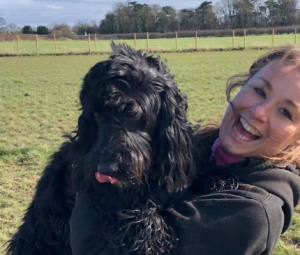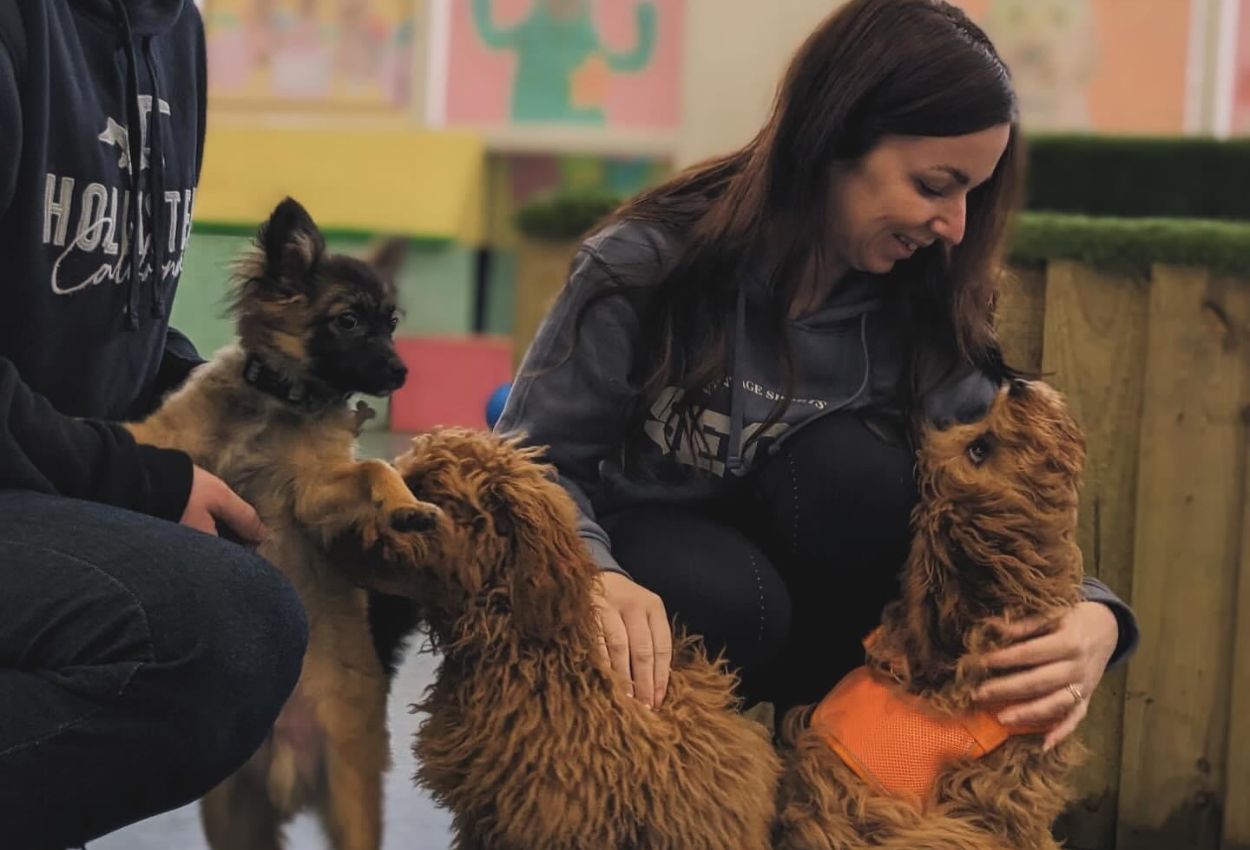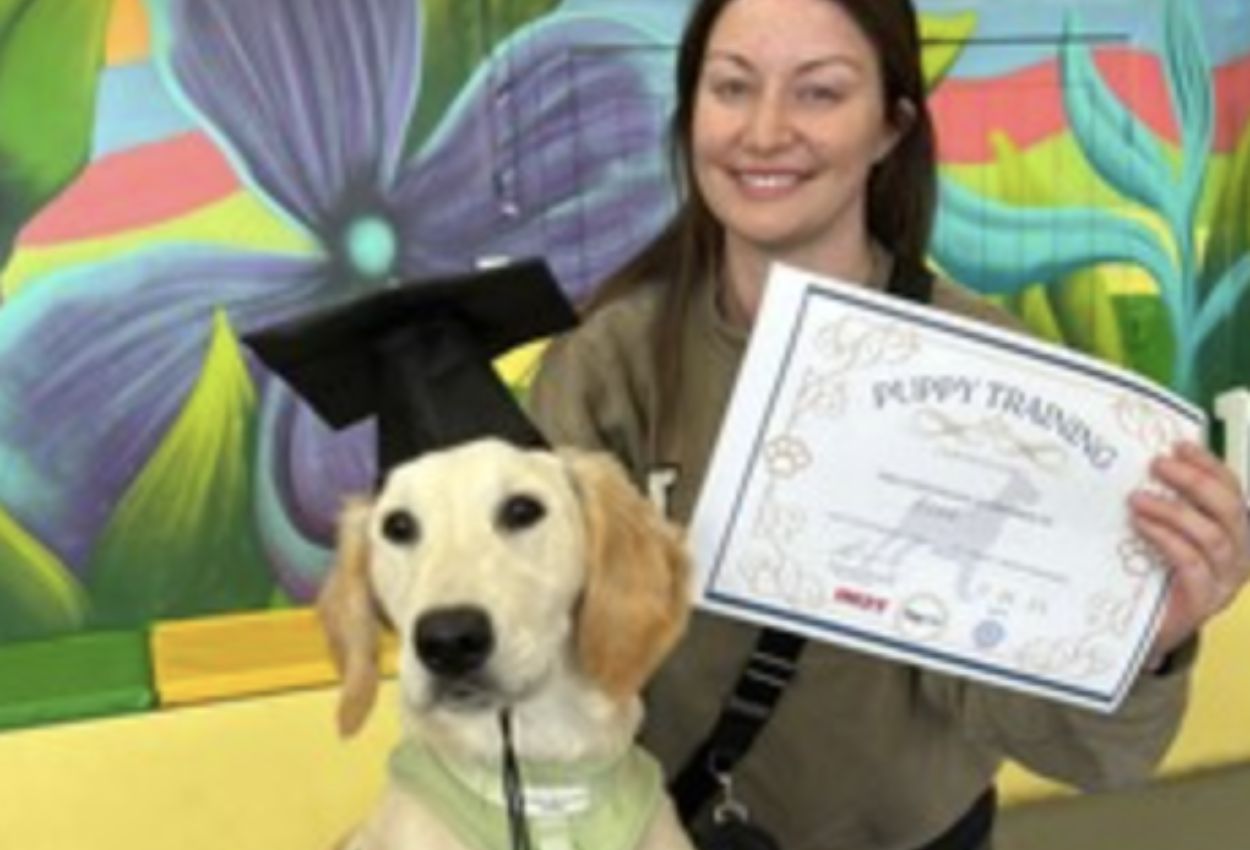Common dog training issues and how to fix them.
As a fully qualified and highly experienced dog trainer based in Wirral, UK, and a proud member of the Institute of Modern Dog Trainers, I have encountered a variety of common issues that dog owners face. From getting a reliable recall to stopping your dog from pulling on the lead, these challenges can often be overwhelming. In this blog post, I will share effective, positive, and force-free solutions to these common problems and explain why using positive training methods is essential for your dog’s well-being.
Common Dog Training Issues and How To Fix Them: Recall and Pulling on the Lead
1. Getting a Reliable Recall
A reliable recall is crucial for your dog’s safety and your peace of mind. Here’s how to achieve it:
- Start Indoors: Begin training in a distraction-free environment like your home. Use a happy, enthusiastic voice to call your dog’s name followed by a command like “come” or “here.” The tone of your voice is so important – be exciting!
- Use High-Value Rewards: Reward your dog with high-value treats or their favourite toy every time they come to you. This creates a positive association with the recall command. Tip: Higher protein and smellier treats tend to work better. Not food motivated? A toy with fur and/or squeaks usually appeals to a primal instinct!
- Gradually Increase Distractions: Once your dog reliably comes to you indoors, practice in the garden, then gradually move to more distracting environments like parks. We want 90% efficacy in a low-stimulus environment (like the house!) before we make it trickier for our dog!
- Consistency is Key: Be consistent with your commands and rewards. Always make coming to you the best option for your dog. Tip: The whole family must use the same command. And if the pup is ignoring you – no not ‘poison’ your recall cue by repeating it over and over.
- Play Recall Games: Engage in fun games like hide and seek or tag to make recall training enjoyable for your dog. Tip: Restrained recall is SO much fun. Ask us about it!
2. Stopping Pulling on the Lead
Walking your dog should be a pleasant experience, not a battle. Here’s how to stop lead pulling:
- Stop and Start: When your dog starts to pull, stop walking. Stand still until the lead is slack, then proceed. This teaches your dog that pulling doesn’t get them where they want to go.
- Reward Loose Lead Walking: Reward your dog with treats and praise when they walk beside you with a loose lead. Positive reinforcement encourages the behaviour you want to see. Treat placement is crucial!
- Drunk Lead Walking: Make unexpected turns during your walk to keep your dog focused on you. This keeps them engaged and less likely to pull. It also makes it fun!
- Little and often: Keep sessions short and frequent. Consistency is key. Working with a trainer, if you can afford it, can really help you reach your lead walking goals as you are accountable and have the guidance you need.
Why Positive and Force-Free Training Matters
1. Builds Trust and Strengthens Bonds
Positive or force-free training methods are based on rewarding desired behaviours rather than punishing unwanted ones. This approach fosters trust and respect between you and your dog. Training becomes a collaborative and enjoyable experience, strengthening your bond.
2. Effective and Humane
Studies have shown that positive reinforcement is more effective and humane than aversive training methods. Dogs trained with positive methods learn faster, retain what they’ve learned longer, and are less likely to develop fear-based behaviours or anxiety.
3. Encourages a Happy and Confident Dog
Training should be a fun and rewarding experience for your dog. Force-free methods ensure that training sessions are enjoyable, keeping your dog engaged and eager to learn. This positive association with training fosters a happy and confident dog.
Conclusion
Addressing common dog training issues like recall and lead pulling with positive, force-free methods is not only effective but also crucial for your dog’s well-being. As a Wirral-based, fully qualified dog trainer, I have seen firsthand the transformative power of these methods. They build trust, enhance your bond, and ensure a happy, well-behaved dog.
If you’re struggling with training your dog, consider seeking guidance from a qualified trainer who uses positive reinforcement techniques. Your dog deserves the best, and with the right approach, you can achieve wonderful results.
For more tips and advice on dog training, check back here or call us on 0333 444 1236
You can also book a free phone consultation here




